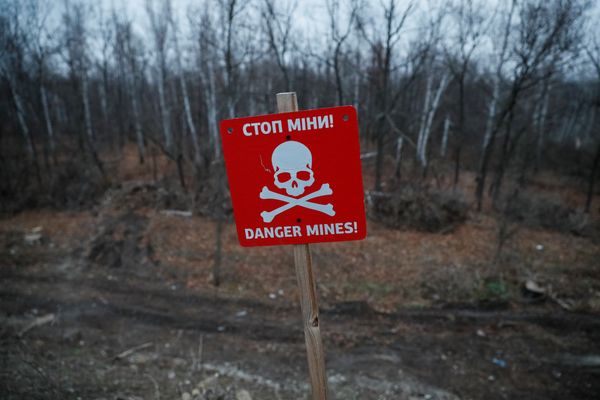
Hong Kong (AFP) - Asian markets mostly rose Friday after a tough week dominated by the Federal Reserve's hawkish tone that has set it on an aggressive tightening path, while oil bounced back after another series of losses.
After a slow start, the region managed to take the lead from Wall Street, which recovered from steep intra-day losses to end on a positive note, having plunged in previous sessions as traders fretted over the prospect of higher interest rates.
While the Fed has made clear it intends to act more decisively to rein in 40-year-high inflation by ramping up borrowing costs and offloading bond holdings, analysts suggested that better clarity on policy was welcome.
The Fed's desire to tighten up has sent the dollar rallying against most other major currencies and particularly the euro, which has been weighed by European officials' reticence to move as aggressively on prices.The single currency is sitting around a one-month low.
Markets have come under huge pressure this year as the end of ultra-cheap central bank cash, a Covid-fuelled slowdown in China's economic activity, the war in Ukraine and soaring inflation come together in a perfect storm.
Still, all three indexes on Wall Street ended slightly higher, having bounced back from heavy losses earlier in the day thanks to bargain-buying, while some observers suggested recent selling may have gone too far.
Asia saw a tepid start but most markets enjoyed mild gains towards the end of the day.
Tokyo, Shanghai, Sydney, Seoul, Taipei, Mumbai, Manila, Jakarta and Bangkok all rose, though Hong Kong was weighed by losses in the tech sector while Singapore and Wellington were also lower.
London, Paris and Frankfurt rallied at the open, while US futures were also up.
Still, OANDA's Jeffrey Halley warned traders were "growing warier about China as the Shanghai lockdown drags on" owing to the fast-spreading Omicron virus variant.
"China’s Covid-zero policy continues to be its Achilles heel, although there are plenty of other reasons to be a little cautious," he said in a note.
"A serious spread outside of its finance and commercial centre to other large cities will be a big headwind for China's growth, China stocks, and by default eventually, much of Asia."
Crude prices climbed nearly one percent having also endured a downcast week after the United States and allies pledged to release more than 200 million barrels over the coming months to offset the loss of Russian supplies.
The decision comes on top of concerns about demand from China owing to the lockdowns.
Still, there is a feeling that the war in Ukraine, and any possible further sanctions on Russia, could send the oil market higher again.
"I still think...the sentiment-driven sell-off will give way, and fundamentals will reassert themselves, especially as more market participants start fretting about how will the US administration replenish the SPR drawdown," said SPI Asset Management's Stephen Innes.
"Oil prices remain volatile amid concerns over Russian supply against the backdrop of slowing demand in China and a likely depressed US summer driving season due to higher prices at the pump."
He added that "deficits are likely to persist but only moderated by the accelerated strategic stock release from May to November and weaker demand growth".
Key figures around 0720 GMT
Tokyo - Nikkei 225: UP 0.4 percent at 26,985.80 (close)
Hong Kong - Hang Seng Index: DOWN 0.1 percent at 21,797.11
Shanghai - Composite: UP 0.5 percent at 3,251.85 (close)
London - FTSE 100: UP 0.8 percent at 7,615.04
Brent North Sea crude: UP 0.9 at $101.48 per barrel
West Texas Intermediate: UP 0.9 percent at $96.89 per barrel
Euro/dollar: DOWN at $1.0859 from $1.0880 late Thursday
Pound/dollar: DOWN at $1.3044 from $1.3071
Euro/pound: UP at 83.24 pence from 83.17 pence
Dollar/yen: DOWN at 124.10 yen from 123.95 yen
New York - Dow: UP 0.3 percent at 34,583.57 (close)







